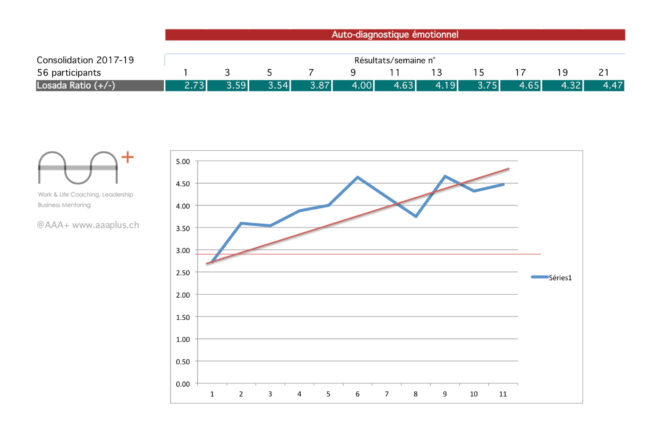Solutions to help you
How do you get out of depression without medication? A state of depression, mood disorders or seasonal depression are not to be taken lightly. Similarly, don't overlook other ailments such as irritability, constant devaluation, melancholy or even sleep disturbances. Also take into account any depressed mood, malaise or sadness, especially if they persist.
Before getting to the point of depression or burn-out solutions exist. Indeed, it is better to avoid medication (antidepressants, anxiolytics, ...) with side effects or worse, hospitalization.
Needless to say, people suffering from severe depression or mental illness should not stop their medication on their own.
If you suffer from depressive tendencies it is best to talk to your psychiatrist before changing your medication. Similarly, if you have a history of depressive episodes, you want to avoid any risk of relapse.
Having said that, let's move on to solutions.
In addition to the usual suggestions that health professionals prescribe ... And that you can also find in the "well-being and personal development" sections of good bookshops ...
Namely:
- Sleep (well and sufficiently), easier said than done if your type of depression leads you to sleep poorly...
- Eat well: 5 fruits and vegetables a day, drink enough water, reduce alcohol, (beware also of lack of appetite) etc...
- Physical exercise: ideally at least 20 minutes a day without too much force so as not to disgust you and stop doing it at all.
- Cultivating and developing quality relationships...
There are a variety of other techniques that are easier and more affordable. Just shop around and select the ones that suit you best.
However, the problem is that when you're depressed, you're irresistibly inclined to do not more, but... less! We often fall back on what is fat and sweet when it comes to food. Exercise already tires us out just thinking about it. And we want to hibernate more than we want to smile and look our best to develop our relationships.
However, and this is unfortunately true, without a minimum of effort, the negative synergy becomes more pronounced and one sinks into depression.
A few points to know:

1. Too much harms the good
All of the above solutions are good, the first trick is not to want to do everything at the same time. Put your ego aside and start small.
Avoid the "fitness membership" syndrome like the plague. This syndrome illustrates people who are suddenly ultra-motivated and decide to take a subscription over several months. They make a hell of a schedule for the first week and then give up either because of an injury or out of disgust. This not only makes the fitness session expensive, but leaves a feeling of failure that undermines the next attempt.
Make your program ultra easy. Put aside thoughts like "no, but I'm not that bad, am I? I can definitely do more..."
Take one solution at a time. Repeat twice in the first week. Then increase to three times in week two and four times in week three.
Monitore yourself, discover the interesting being that you are with curiosity. Maybe four times is already too much... All right, don't resist what is and above all avoid any guilt. You can't change right away, so deal with it. Maybe in a month it will become quite possible.
On the other hand, your resistance provokes negative emotions and thoughts. This adds a kind of often unconscious suffering and takes energy from you unnecessarily. This is what we try to avoid.
Once three or four times a week seems easy, take a second technique. And so on and so forth...
Be aware, however, that the same technique is not suitable for everyone. If it doesn't do you any good or even makes you feel worse, change after three weeks. I mention three weeks because it takes a minimum amount of time to notice the effect.

2. Give time to time.
You won't change your condition in two weeks...
The work of Alvaro Pascual Leone, Professor of Neurology at Harvard, is a good illustration of this.
Dr. Leone observed the brains of beginner blind people in Braille by MRI. Braille is really hard to master and students practice it Monday through Friday.
Mr. Leone found changes in the beginner's brain related to the sensitivity of the fingers on Fridays. However, after the two weekend breaks, these changes were significantly reduced on Monday. This demonstrates the functioning of short-term memory. When you study for an exam you usually use your short-term memory. One week later you have already forgotten a lot of the information you have studied.
The story of Professor Leone's results could end there. Yet he persevered with his investigations. After about 6 months he was able to see that Monday's changes were beginning to progress. Braille is (at last) becoming a given. Dr. Leone's research showed that it took about 6 months for significant lasting change.
These results confirm that aiming for long-term change takes time, patience and effort.
Similarly, you will find similar results in the graph below. These results (blue line) were obtained on a sample of more than 50 people, tested every two weeks.
They followed a wellness and mental & physical health reinforcement program in the company for 6 months. The first figure (result of the average of the 50+ people) is below 2.9. Results of more than 2.9 indicate that the person feels good and happy over the last 24 hours (Losada ratio). It can be seen that gradually the average increases in a non-linear way. That is to say, with ups and downs, but always higher. The red line indicates the upward trend.
(source: AAA+ Coaching et Formations, Fabienne Revillard)
Often the improvement is barely noticeable because it is very slow. However, when you compare your condition 6 months later you realize that there is a real difference.

3. Accept recidivism in advance
When you start, you are (normally) a minimum motivated (otherwise you don't start).
And then after a while (which I'll keep quiet so as not to give you a milestone), you probably get fed up. Or something happens that gets you off the hook.
It's normal! Accept it in advance as part of your program.
The more you expect it, the easier it is for you to get back to it a few weeks later. And it's being able to get back to it at some point that's important.
Conversely, the more disappointed and angry you are with yourself, the more suffering you inflict on yourself. In addition, this generally reinforces your feeling of self-deprecation. Insidiously, you also develop a memory of a negative experience, which comes out when you think about starting over. And your unconscious gives you the message (rightly) "it was negative the first time, you don't want to go through that again, do you? »
For your information, the recurrence rate on quitting smoking or losing weight is 86% to 98%!
However, 63% of people eventually succeed on their own, after several attempts.
(source: Schachter 1982 "Recidivism & self-cure of smoking and obesity" American Psychologist 37: 436-
444)
It is therefore fundamental to completely agree that most of the time there is a need to start over several times.
4. Pleasure and rituals
Given all of the above, if you don't find a hint of pleasure (or well-being) with your program, it's almost doomed to failure.
The first thing to do, the best you can, is to silence your mind.
Since this is by far not an easy thing to do, you can more simply choose not to listen to it.
Your mind will (probably) make value judgments about the techniques you want to practice.
"I don't like it."
"It's not doing me any good."
"I'm wasting my time"
"I look ridiculous."
"I'll do it later"
"I don't feel like it now"
"I don't have the strength"
"It's not for me."
"It may work for others, but not for me."
"I'm going to watch an episode of my favourite show, it'll make me feel better", etc.
They're just stories you tell each other. They're probably so common, you don't even realize it anymore. And the problem is... you believe them.
If you recognize yourself in this, don't worry, it's very human and you're by no means the only one.
The good thing about the stories we tell ourselves is that once we are aware of them, we can start to change them. However, while waiting for them to change, we can accept that they are there and not listen to them.
Try to practice without any judgment. Break down into small pieces. For example, if you are writing three good things (a classic exercise), ask yourself, "Can I take a pen without displeasure or undue effort? Can I take a piece of paper? Yes" or "Can I turn on my computer? Can I write the first sentence on the subject that comes to mind? Yes." etc.
Try to maintain a modicum of pleasure. Don't procrastinate on getting started. However, once you have started, if at that point the effort is too great, allow yourself to stop. You will resume later or the next day.
One trick is the chain of rituals. It is easier to chain one more ritual than to start a practice with nothing before. And it is more durable to have rituals. If you are not a morning person, you can chain your practice to your lunch. At your afternoon break. On your way home from work (or before you go home). After brushing your teeth in the evening. Before going to bed, etc.

5. Have someone accompany you
Whether it is through a peer, a friend, a professional (psychotherapist, CBT,...) or you participate in a course, it is easier than alone. You put much more chances on your side to get back on track in case of recurrence and to start again more quickly.
Moreover, it is generally more pleasant to have one person (or several) with whom to discuss one's progress and difficulties.
This may even be, in itself, the positive point for you of this approach.
Finally, it helps in terms of maintaining your perseverance, which is crucial in this kind of approach.
There are more and more wellness, happiness (and other names) courses available that are often much cheaper per hour than a professional. You may still want to find out about the scientific validity of the techniques or the results of the course in question before you commit yourself. The advantage of these courses is that they provide you with a variety of different techniques for activating different neurotransmitters. Dopamine, serotonin, norepinephrine, oxytocin, endorphin, you will feel the positive effects of the techniques that best fill your specific gaps.
On the other hand, more and more companies are putting prevention and mental health reinforcement programmes on their agenda. If you're one of the lucky ones who have access to them, it's probably worth taking a look.
In conclusion and in general, favour positive practices and avoid anything that pulls you down. Including and especially the stories your mind tells you.
"He who moves a mountain, first moves small stones" Confucius...

Discover also AAA+ Coaching and Training on Facebook and Linkedin?
Are you looking for tips for successful career progression?
Sign up at newsletter and receive our offers and tips for better professional development.

